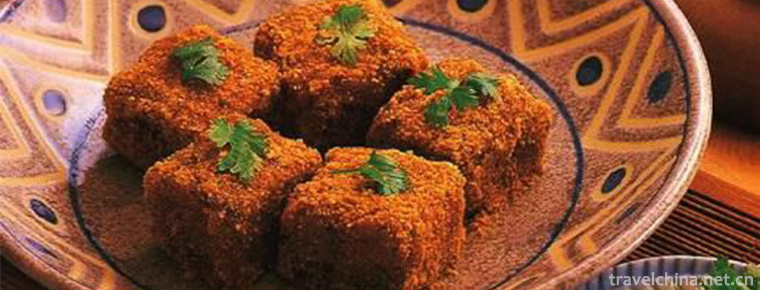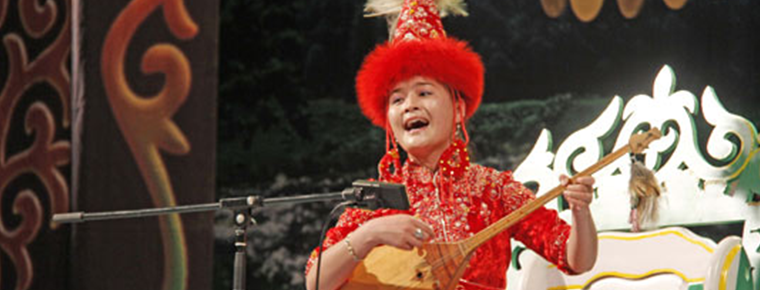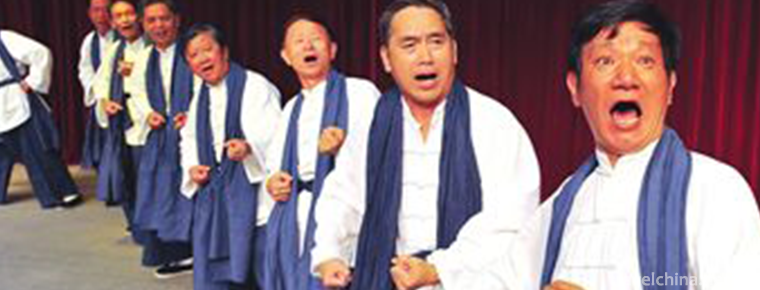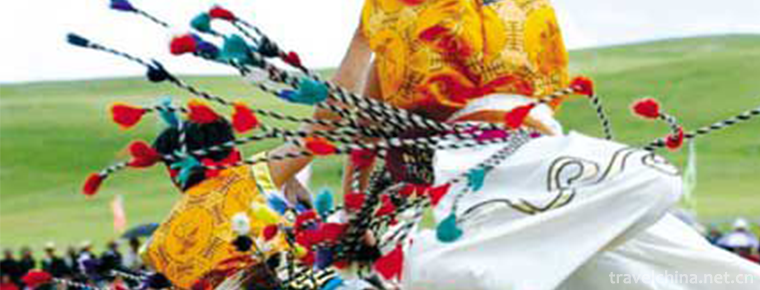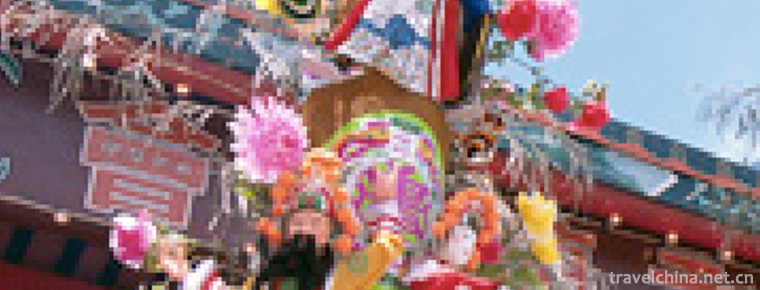Fish Ball
Fish balls, also known as "fish wrapped meat", are mixed up with eel, shark or freshwater fish, mixed with sweet potato starch (* starch), and then wrapped in pig like lean meat or shrimp stuffing. Fish balls are the traditional specialties often cooked in Fuzhou, Fujian, Guangzhou, Taiwan and Fuzhou, Jiangxi. They belong to Cantonese cuisine or Fujian cuisine. Also known as "water pill", in ancient times, it was called "boiled fish balls". Because it tastes delicious, not greasy to eat, can be used as pastry ingredients, but also as soup, is an indispensable seafood coastal people.
Traditional fish balls in Jiayu, Hubei. Because of the good quality of grass carp, Jiayu Yuyuan is loved by people because of its white color, delicate taste and delicate fragrance.
In 2014, the State Administration of Quality Supervision and Inspection issued a public announcement approving the list of products protected by national geographical indications. Jiayu Fish Roll ranks first in the list of products protected by national geographical indications in Jiayu City.
Fish balls are widely known for their emphasis on material selection and manufacturing techniques. Most of them are fresh yellow croaker, mackerel, eel and small shark. Chop fish, add proper amount of ginger juice, salt, monosodium glutamate, mash into fish paste, add potato powder, mix well, squeeze into small balls, cook in boiling soup. Its color is like porcelain, it is elastic, crisp and not greasy, it is a common dish for banquet.
According to the history of barnyard grass, Qin Shihuang liked fish. He unified the whole country and made the emperor. Every meal must have fish, but there could not be thorns. If there were fish thorns, the cook would die. Several chefs died for it, while burning fish soup was afraid of cursing Qin Shihuang for "crushing his body and bones". One day, a cook made a royal meal, saw the fish and timid and worked hard. He used a kitchen knife to fish back. He was surprised to find that the bones of fish bones and bones were automatically exposed and the fish flesh became antler. At this time, the palace meal, the chef in a hurry to learn wisdom, pick out the fish spine, smoothly knead the fish into balls, without thinking, put into the boiling leopard embryo soup, made balls. In a short time, each of them was white, soft and glittering. The fresh fish balls floated on the surface of the soup and were presented to Qin Shihuang. Qin Shihuang praised him very much and ordered the reward. Later, this practice gradually spread from the court to the people, known as "boiled fish balls", that is, fish balls.
1. Fish is rich in nutrients and has the functions of nourishing stomach, promoting water and reducing swelling, breast-opening, clearing heat and detoxifying, and stopping cough and exhaustion.
2. Fish is rich in magnesium, which has a good protective effect on cardiovascular system, and is conducive to the prevention of hypertension, myocardial infarction and other cardiovascular diseases.
3. Fish is rich in vitamin A, iron, calcium, phosphorus and so on. Fish is often eaten and has the functions of nourishing liver and blood, nourishing skin, nourishing hair and building beauty.

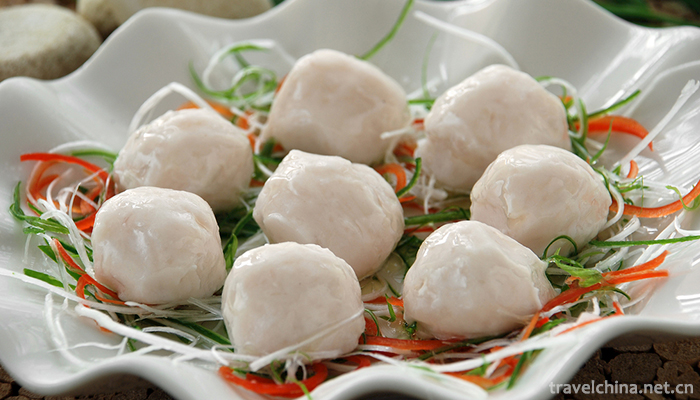
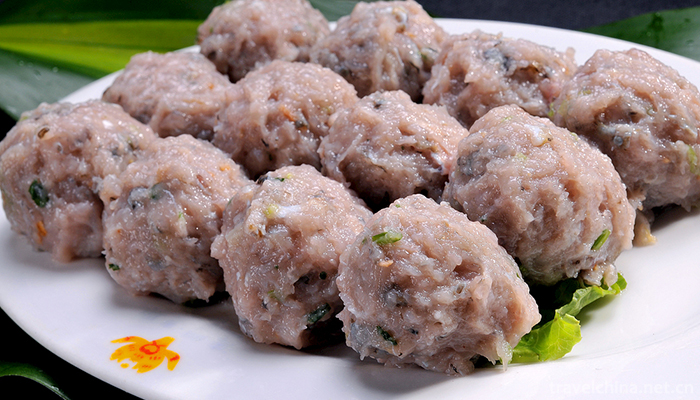
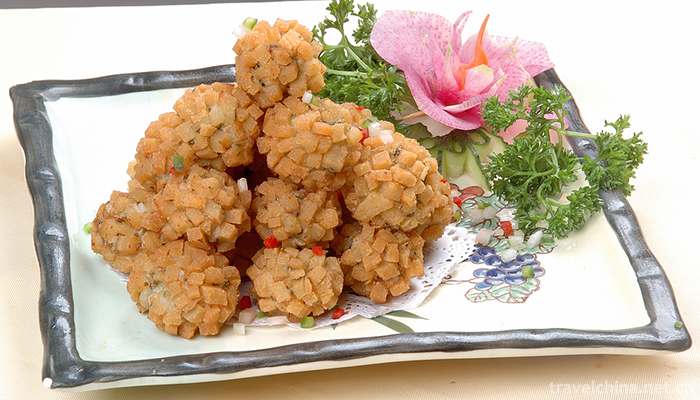
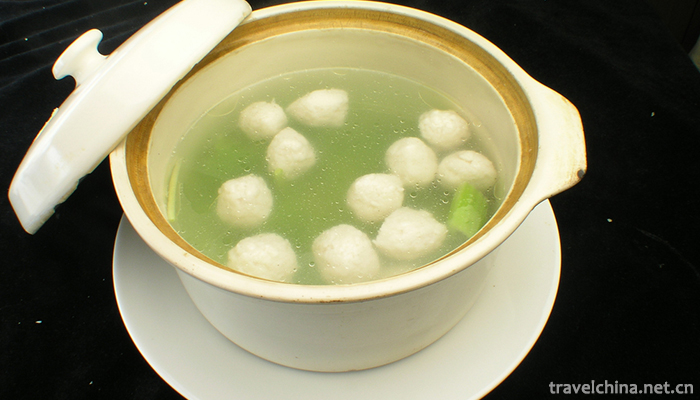
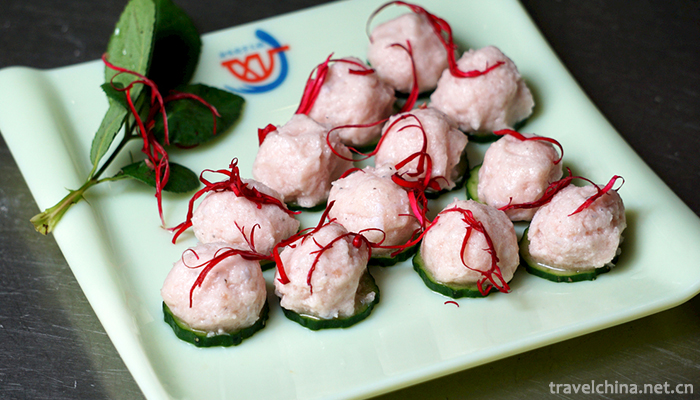
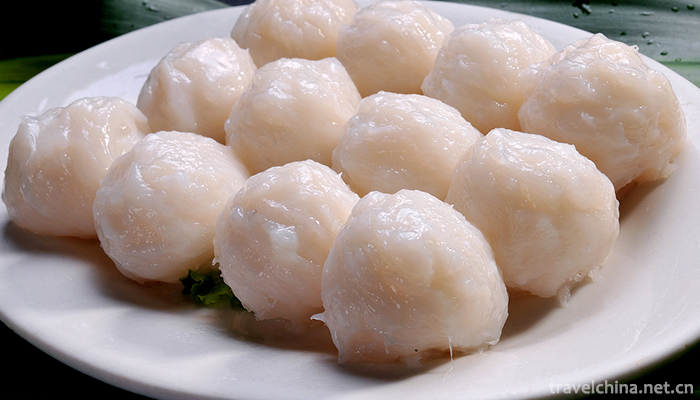
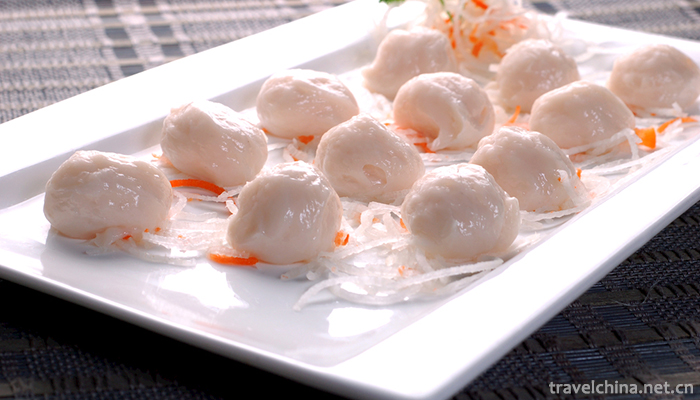
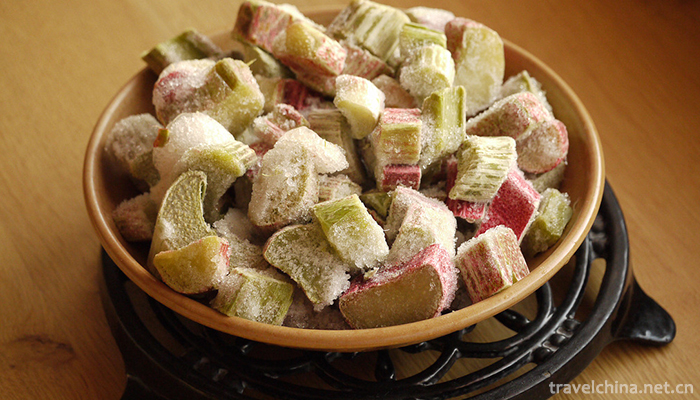
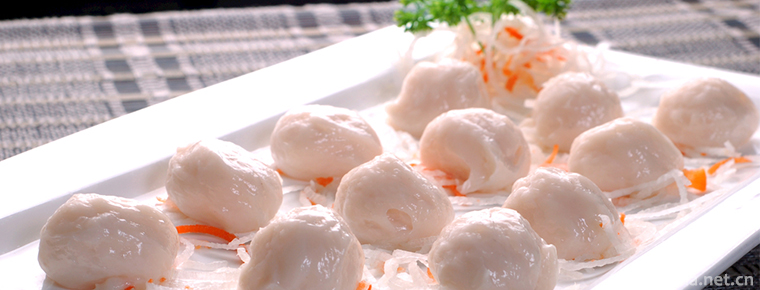
Fish Ball
-
Fu Ling Rose Crisp
Fuling Rose Crisp is a special traditional snack in Jixi County, Anhui Province. Fuling Rose Crisp is a well-known traditional pastry, which is produced in Fuling Village, Jixi County.
Views: 201 Time 2018-11-27 -
Linhai Qishi Scenic Area
Linhai Qishi Scenic Area is located in Tangwanghe District, Yichun City, Heilongjiang Province. Scenic area covers 190 square kilometers. It is a new eco-tourism area and National Geological Heritage
Views: 205 Time 2019-01-30 -
Qingshui rock
National AAAA tourist attractions, built in the Northern Song Dynasty, were rebuilt in the Ming Dynasty. In the Northern Song Dynasty, the priest Puzu Zen Buddhist monk once practiced here
Views: 203 Time 2019-02-07 -
Yongquan Qicheng Great Wall Ecological Scenic Area
The Great Wall of Yongquan Qi is a quiet tourist scenic spot, located in Yongquan Village, Zihe Town, Zibo City, where Pu Songling lived in the southeast mountain area. Here the mountains are connecte
Views: 139 Time 2019-03-05 -
Bouyei Leyou
Le You and Le Lang are Buyi oboe gas song instruments. They resemble suona, bowl-less, insect whistle playing, bright and sweet timbre. It can be used for Solo or singing accompaniment
Views: 185 Time 2019-04-04 -
Kazakh Tiermai
Tiermai, which means "short poem" in Kazakh language, usually implies philosophy in the poem in a narrative way to give people inspiration. This kind of poem is widely spread among Kazakh he
Views: 194 Time 2019-05-02 -
Wharf song
The dock number is a traditional folk song in Shanghai. Singing in docks, cargo yards, loading and unloading, lifting, push and pull and other labor occasions. The main singing methods of wharf number
Views: 151 Time 2019-05-16 -
Reba Dance
Reba dance is a form of dance performed by Tibetan "Reba" artists. Reba is a group of street artists who make a living selling arts (usually composed of family as the basic unit) performing,
Views: 203 Time 2019-06-11 -
yangzhou storytelling
Yangzhou Dialect Commentary is a kind of folk art storytelling in Yangzhou dialect, which was developed in the early Qing Dynasty and popular in northern Jiangsu and Zhenjiang, Nanjing and Shanghai.
Views: 130 Time 2019-07-10 -
Zhongyuan Festival Chao Ren Yulan Winning Club
Chao Ren Yulan Sheng Hui is a traditional folk custom and folk belief activity. The fifteenth day of the seventh lunar month is commonly called "ghost festival" in Hong Kong. It is said that
Views: 187 Time 2019-08-10 -
Cuiping Mountain Park
Cuipingshan Park, located in the northwest of Yibin City, Sichuan Province, is a famous urban forest park integrating scenic spots and forest scenery. It is mainly composed of Cuiping mountain and Zhenwu mountain.
Views: 151 Time 2020-10-16 -
Miyaro scenic spot
Miyaro, translated as "fun Bazi", is a provincial scenic spot, located in the Zagunao River Valley of the upper reaches of Minjiang River in Lixian County, Aba Tibetan and Qiang Autonomous Prefecture
Views: 120 Time 2020-11-07
